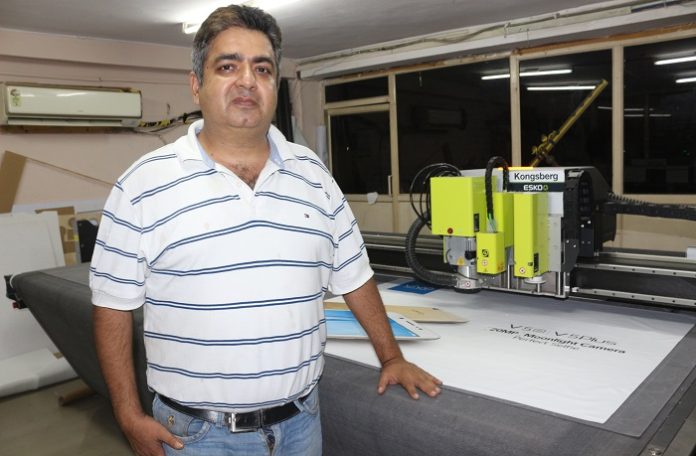The supply of engineering and automation components for the manufacturing of printing machines as well as the firmware and consumables by leading manufacturers is improving in India. The Boettcher group is a Germany-based global supplier mainly of rubber rollers and printing chemicals. It is showing strong growth in India as in other parts of the world by continuously innovating and coming out with products as solutions of un-met needs, in the ever changing realm of printing demands and dynamics.
Boettcher, with its existing setup of two plants in India (one for chemicals and other one for rubber rollers), is mainly catering to the graphic and packaging industry along with some heavy industry segments like textile and steel. To become an economic player to reckon with, Boettcher as a group is also diversifying with products in other growing sectors like packaging, handrails, and heavy industry such as steel, textile, wood and others. Sandeep Saini, managing director, Boettcher India, says, “This diversification will help us to sustain, grow and meet the up-coming economic challenges.” Edited excerpts from an interview by VDMA.
What are the major activities of your organization in India?
Sandip Saini – It is heartening to see that the life and vibrancy in the Indian printing and packaging industry is mainly driven by rapid urbanisation, investment in housing and construction, healthcare, plastic and food packaging. Packaging is expected to grow at 15-20% and Indian newspapers printed on web offset presses led by the smaller cities and towns of India at 10-12%. With Boettcher as a brand to reckon with, we have full potential to catch the growth and tap the untapped market.
What are your views on the ‘Make in India’ program?
Sandip Saini – The primary goal of ‘Make in India’ is to make India a global manufacturing hub, by encouraging both multinational as well as domestic companies to manufacture their products within the country. Led by the Department of Industrial Policy and Promotion, the initiative aims to raise the contribution of the manufacturing sector to 25% of the Gross Domestic Product (GDP) by the year 2025 from its current 16%. It also seeks to facilitate job creation, foster innovation, enhance skill development and protect intellectual property. It targets 25 sectors of the economy which range from automobile to Information Technology (IT) and Business Process Management (BPM).
It is a good initiative by the current government, and in tune with this program, Boettcher India also announced an official opening of its state-of-the-art rubber roller manufacturing plant in India on 1 September 2016, which happens to be the18th plant in continuation with Boettcher’s global policy of placing and working as a competence partner for customers.
What are the main challenges of doing business in India?
Sandip Saini – Not all MNCs are able to deal with the policy maze that is India. But those which do so are winners. In a recently published World Bank report, India is ranked 132nd, in terms of ‘ease of doing business’ and a disheartening 166th, in terms of ‘starting up new businesses.’
It’s quite apparent that it’s a lot more difficult to start a new business in India than it is to remain engaged in doing an existing one. We need to address some of the behavioral and policy issues in such an environment, so that a fast-growing market can be a profitable one too. Although many apparent changes in business policy have been made in recent times, a lot more is needed. The coming decade will be a decade of momentous change, as India integrates better with the global economy, focuses on driving greater competitiveness, and draws up a policy framework to enable a more transparent governance structure.
What is the impact of GST in the manufacturing sector in India?
Sandip Saini – The manufacturing sector of any country is a major economic driver for the developing economies across the globe. However, unlike others, India’s manufacturing industry is still scrambling with the others and the performance has been lacklustre. Nevertheless, it is expected that the manufacturing sector might be revived under the focussed efforts of the government and by the implementation of GST regime. Reduced cost of production, hassle-free supply of goods and the restructuring of supply chain management are some of the benefits expected by the GST regime.
What according to you are the ways in which VDMA can contribute in enhancing networking with German manufacturers?
Sandip Saini – VDMA is playing a pivotal role in integrating the German manufacturers in India. It is helping not only the existing companies with the news of new developments in the Indian business environment but also those who are planning to venture in India. Indian companies are also reaping benefits by knowing about their German counterparts. Great job and kudos to the VDMA team!

















